VOLUMEN 32 -ISSUE NO.8 - DECEMBER 2020
Persecution grows despite elevated awareness
Persecution grows despite elevated awareness
Metadata: Topic(s): The Persecuted Church
WASHINGTON (BP) — While egregious acts of religious persecution are more likely to cause global protest 20 years after the International Religious Freedom Act of 1998, many countries are increasingly denying such freedoms, a federal watchdog commission reported today (April 25).
The U.S. Commission on International Religious Freedom (USCIRF) noted the dichotomy in releasing its 2018 Annual Report on 2017 religious freedom violations in 28 countries.
 “Sadly, religious freedom conditions deteriorated in many countries in 2017, often due to increasing authoritarianism or under the guise of countering terrorism,” USCIRF Chairman Daniel Mark said in releasing the report.
“Sadly, religious freedom conditions deteriorated in many countries in 2017, often due to increasing authoritarianism or under the guise of countering terrorism,” USCIRF Chairman Daniel Mark said in releasing the report.
“Yet there is also reason for optimism 20 years after the passage of the International Religious Freedom Act,” Mark said. “The importance of this foundational right is appreciated more now than ever, and egregious violations are less likely to go unnoticed.”
“In its second year, the Trump Administration should build on stated commitments to elevate religious freedom as a priority in our foreign policy and national security strategy by vigorously implementing IRFA, the Frank Wolf Act, and the Global Magnitsky Human Rights Accountability Act [of 2016] to pressure egregious violators,” Mark said. “USCIRF also urges the administration to prioritize seeking the release of religious prisoners of conscience abroad, and to work closely with international partners in efforts to promote freedom of religion or belief for all.”October will mark the 20th anniversary of the International Religious Freedom Act (IRFA) which has never been fully implemented, USCIRF said, but was strengthened in 2016 by the Frank R. Wolf International Religious Freedom Act (Frank Wolf Act) to address implementation concerns. USCIRF’s report encouraged the Trump administration to fully implement IRFA and related laws to speed and protect international religious freedom.
USCIRF annually recommends countries of particular concern (CPCs), or Tier 1 countries, based on “systemic, ongoing, egregious” violations, as well as a Tier 2 “watch list” of countries that meet one or two of the criteria for CPCs. Since the Frank Wolf Act, Congress also has recommended entities of particular concern, EPCs, for non-state violators such as terrorist groups.
Genocide, killings, slavery, rape, imprisonment, forced displacement and forced conversions were among the most severe abuses reported in addition to childhood religious education bans, female marginalization, intimidation, harassment and property destruction.
“In addition to endangering individuals and communities, severe violations of religious freedom threaten the stability and security of nations and regions,” USCIRF said. “The freedom to follow one’s conscience in matters of religion or belief is essential to human dignity and human flourishing.”
The list of CPCs recommendations in 2018 are the Central African Republic (CAR), Nigeria, Pakistan, Russia, Syria and Vietnam, in addition to 10 countries the U.S. Congress so designated in December 2017: Burma, China, Eritrea, Iran, North Korea, Saudi Arabia, Sudan Tajikistan, Turkmenistan and Uzbekistan.
USCIRF recommends 12 countries for a U.S. 2018 watch list: Afghanistan, Azerbaijan, Bahrain, Cuba, Egypt, India, Indonesia, Iraq, Kazakhstan, Laos, Malaysia and Turkey.
The Islamic State (also known as ISIS) in Iraq and Syria, the Taliban in Afghanistan and al-Shabaab in Somalia are listed as EPCs.
The full report is accessible at uscirf.gov/reports-briefs/annual-report/2018-annual-report.Acts of persecution noted in the USCIRF report include the unjust imprisonment of American pastor Andrew Brunson in Turkey; a genocidal campaign waged by ISIS against Christians, Yazidis and Shi’a Muslims in Iraq and Syria; in Nigeria, the government’s failure to prevent or punish religion-based violence involving Boko Haram and Fulani herdsmen; in Pakistan, blasphemy laws and increased extremist activity against minority religious communities including Christians and others; and in Russia, banning Jehovah’s Witnesses and accusing peaceful religious groups of extremism.
ABOUT THE AUTHOR
DIANA CHANDLER
Restricted
Christian Persecution in Cuba
Overview:
Major Religions:
Persecutor:
What It Means To Follow Christ In Cuba:
Access To Bibles:
VOM Work:
“The sustained growth of the churches unnerves the government”, Cuban Pastor Mario Félix Lleonart, says. Several evangelical leaders have been interrogated and arrested in the last months.
Cuban religious leaders are against
Ismael Laborde y Juan Alexis Hernández García,líderes religiosos Foto © Facebook
Lutheran leaders in Cuba were against the humanitarian aid that was made from the United States and that according to Rosa María Payá, from Cuba Decide, is already on the island thanks to the work of various religious institutions. From the eastern province of Santiago de Cuba, Bishop Ismael Laborde, of the United Evangelical Church, said that it is "ethically unacceptable" to pretend to offer aid to "the poor.""Humanitarian actions must be based on love and respect for the dignity of the peoples and be consistent with the priorities of the Cuban government,"the religious leader sympathetic to the Havana regime said on Facebook.His comment took place shortly after the Council of Churches of Cuba spoke out against humanitarian aid, which would benefit some 15,000 families, according to data provided by the Foundation for Pan American Democracy, which promoted the collection of supplies. "Everything must be done decently and with order from the faith or institute of good will. Not with political trickery. It is unfair and ethically rude to use deficiencies for politicking purposes. That offends common intelligence and God himself," said the Lutheran leader .The Christian bishop also mentioned that thanks to the Humanitarian Aid Projectto face COVID19, of the Evangelical Lutheran Church in America, some 300 families from Santiago (believers and non-believers) received money to purchase the food modules sold by the State, as well as pork, chicken and medicines. For his part, the auxiliary bishop of the Church of the Lutheran Confession in Cuba, Juan Alexis Hernández García, published an extensive message on Facebook in which he resorted to rhetoric and the official discourse to point out that some "are determined to continue and even deepen retrograde and imperial plans "and make use of" politicking "to achieve such ends."When I speak of politicking, I mean to side with a cruel, inhuman and ruthless system, it is to side with the few and go against the many. It is to see how the Bible and the Name of God are used, to plunge an entire people into destabilization, confrontation and oblivion. This is how it was done with Bolivia and that is how it will be done with us, "wrote Hernández García. In a boast of his speech related to the Cuban regime, the Christian questioned the aid that comes from the "most radical wing of the Cuban exile in the United States" and made his words coincide with the message of the Council of Churches of Cuba, which was also shown against that humanitarian aid."How are they going to offer help now, when they have ignored and supported a blockade for 60 years with the intention of exterminating an entire people whose only fault has been to think politically differently, that is called genocide!" This Friday, through an official statement, the pro-government CIC described this aid as "an offense to the people and the churches," according to statements by its president, the Reverend Antonio Santana Hernández.For Santana Hernández, the "interest is political and economic" in this "supposed aid" is evident, which he disassociated with the trajectory of "brotherhood and solidarity of the Cuban and American churches."This week, Rosa María Payá, leader of the Cuba Decide platform, announced the arrival of this humanitarian aid on the island.“During the last weeks, the
churches that have been in charge of sending and receiving humanitarian aid
have confirmed to us that the containers are in the port. . These churches have been notified by the shipping company and have complied with all the established requirements and have also completed all the regular processes, ”he explained.The initiative was announced in May and Cubans living in Miami collaborated with the project, which would benefit some 15 families throughout the country, fundamentally affected by the economic crisis that aggravated the coronavirus pandemic. Reported https://www.cibercuba.com
Cuban pastor arrested and church demolished
Cuban pastor arrested and church demolished
Tags cuba,alain toledano,reverend fausto polemo,arrested
Cuba: church demolished and hundreds arrested
9 Feb 2016
Emanuel Church, a large church in eastern Cuba affiliated to the Apostolic Movement, an unregistered Protestant denomination, was demolished by the authorities on 5 February while hundreds of church members were detained.
The property of Reverend Alain Toledano in Santiago de Cuba was surrounded by officials including members of the police, state security and the military at approximately 5am on 5 February. They detained his wife, Marilín Alayo Correa, before demolishing both Emanuel Church and the pastoral home.
The destruction of the church follows similar demolitions of two Apostolic Movement churches in Camaguey and Las Tunas provinces on 8 January.
Over the course of 5 February approximately 200 leaders and members of Emanuel Church were also detained. A group of around 40 were held in a local school while others were taken to police stations across the region to stop them from protesting the demolition. Church leaders reported that many were beaten while they were being detained. The government has repeatedly refused to register the Apostolic Movement denomination.
Reverend Toledano was in the United States attending a religious event at the time of the government action against the church. He told Christian Solidarity Worldwide (CSW) that he believes the Cuban government intentionally carried out the eviction and demolition when he was out of the country. He expressed concern at the impact on his daughters, ages 11 and 12, who he said were screaming as they witnessed their mother being detained, adding that this is the second time they have experienced the destruction of their home and church. In 2007, the Cuban government carried out a significant operation to destroy the church, also located in the Abel Santamaria neighborhood of Santiago, which at the time had around 700 members.
Church leaders told CSW that the church and family home were totally destroyed. In addition, the government confiscated goods belonging to the church including pews, chairs, audio equipment a piano and other musical instruments. Over 1,000 blocks of cement were also confiscated, despite the fact that the Toledano family has documents showing that they were legally purchased.
The property is privately owned by Reverend Toledano and the government had approved the construction of and renovation work on the buildings. However, Reverend Toledano notified CSW of numerous threats of church eviction and closure that he received throughout 2015. These included threats by three men claiming to be government officials on 13 October 2015. In response to the threats, the church organised a ‘sleep in’ on 13 November 2015 with members staying on the property 24 hours a day. However, these efforts were met with an eviction order issued by government Planning and Housing officials two weeks later.
CSW’s Chief Executive Mervyn Thomas said, “We are extremely disturbed to learn of this latest church demolition by the Cuban authorities, in a similar manner to the destruction of the two Apostolic Movement churches on 8 January. We are also extremely concerned for the family of Reverend Toledano and his wife Marilín, who saw their home razed as part of this destruction. This series of demolitions since the New Year indicates a worrying escalation in terms of violations of freedom of religion or belief in Cuba. Again, we urge the international community to raise the demolition of these three churches, the mass detentions of pastors and church members, as well as the threats against others with the Cuban government as a matter of urgency. We continue to call on the EU and the US to make freedom of religion or belief a central component of its dialogues with Cuba and to insist on improvement in this area.”
https://www.csw.org.uk
Church destroyed and 200 hundred members detained in Cuba
Cuban authorities demolished a large church on 5 February while hundreds of church members were detained, according to Christian Solidarity Worldwide (CSW).

Emanuel Church in eastern Cuba, affiliated to the Apostolic Movement – an unregistered Protestant denomination – was surrounded by officials including police, state security and the military at 5am last Friday.
They detained Rev Alain Toledano's wife before demolishing both the church and the pastor's home. Property found inside the church including pews, chairs and a piano were confiscated. Toledano was in the United States at the time of the incident.
Approximately 200 leaders and members of the church were also detained. Around forty were held in a local school and the rest were taken to police stations, apparently to ensure there were no protests against the demolition.
Despite the existance of legal documents proving rightful ownership, over 1,000 blocks of cement were also confiscated by the government, according to CSW.
The church building and home were privately owned by Toledano and extension work had previously been approved by the government.

Toledano told CSW that he believes the timing of the demolition coinciding with his trip to the US was not a coincidence, but tactical.
He said he had received numerous threats of church eviction and closure throughout 2015.
This is the second time the family has experienced the destruction of both church and home, and Toledano expressed concern about the impact these events would have on his daughters – aged 11 and 12 – who he said were screaming as they witnessed their mother being detained.
"This series of demolitions since the New Year indicates a worrying escalation in terms of violations of freedom of religion or belief in Cuba," said Mervyn Thomas, CSW's chief executive.
The Cuban government has repeatedly refused to register Apostolic Movement churches and Friday's destruction comes in the wake of similar demolitions in Camaguey and Las Tunas provinces on 8 January.
https://www.christiantoday.com
Cuba’s socialist regime demolishes church and homes of several of its members
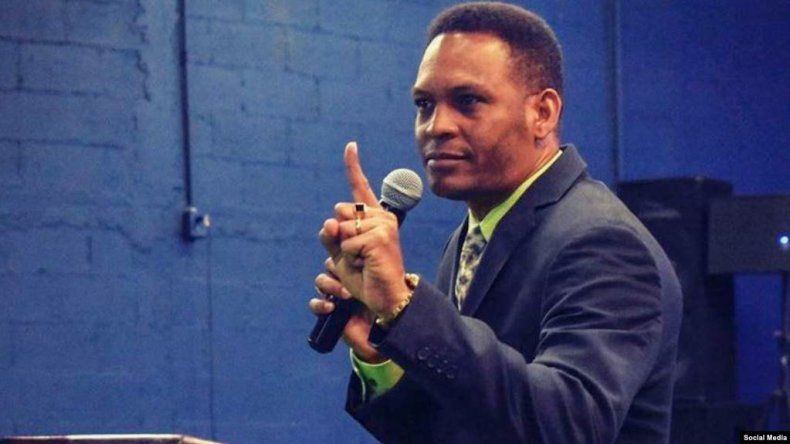
From our Bureau of Socialist Social Justice and Tolerance for Religion
Once again, Castro, Inc.’s monopolistic reflexes have kicked in. Castro, Inc. must control everything, including all churches or houses of worship.
So, a house of worship that had the nerve to exclude itself from this “benevolent” monopoly has been smashed to smithereens, and so have the homes of several of its members, who insisted on being uncooperative.
Needless to say, the pastor, the man reporting this abuse, and several others have been arrested.
Socialist social justice in action. Ever vigilant for the rights of the oligarchs and their monopoly on everything, including worship.
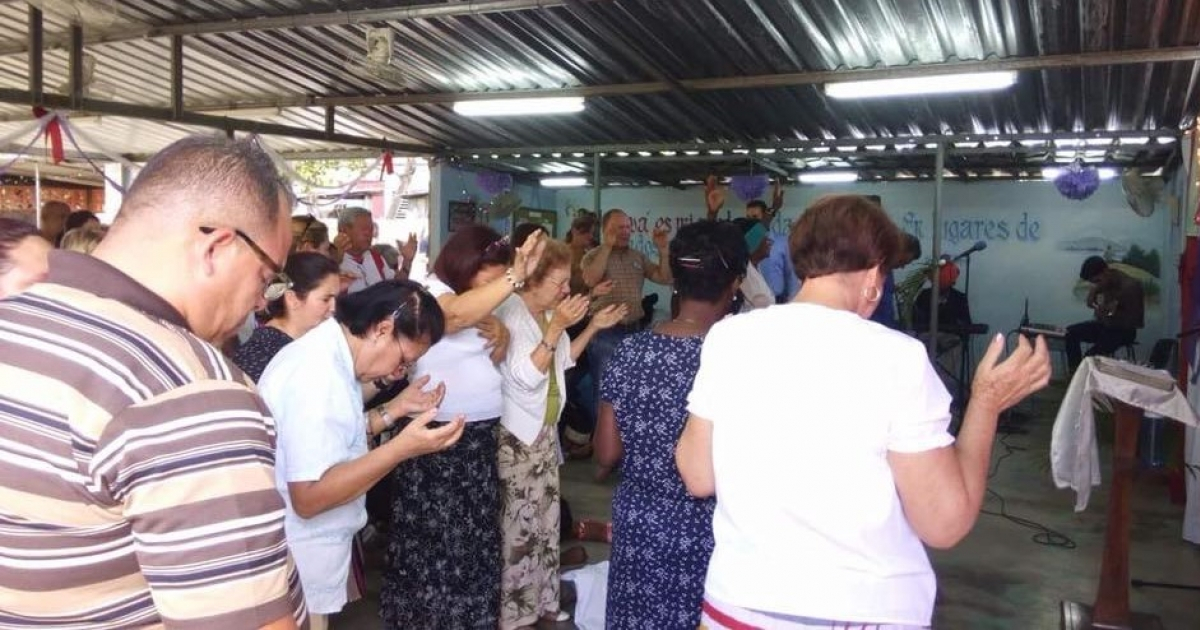
Loosely translated from CiberCuba:
The Cuban evangelical pastor, Alain Toledano Valiente, a member of the Sendas de Justicia Network, has denounced through a direct on Facebook the demolition of a place of worship of the Las Asambleas de Dios church, in Santiago de Cuba, and of several houses .
“They are also demolishing many houses. They have already demolished several houses and now they are demolishing the warehouse where the Christians gather ”, explained the pastor.
Toledano Valiente showed the great movement of trucks, bulldozers, tractors and patrol cars, in addition to an overwhelming presence of State Security agents, many of them dressed in civilian clothes.
The pastor, who has suffered repression on numerous occasions by the island’s government, explained that they went upstairs when he was filming inside the place of worship and that they removed him from the place.
“They are calling the repressors to take charge of me,” he said at another time; “Pending because they are going to try to take my phone away.”
“They fear information more than weapons!” He said.
“Share this video, this is not a video of any program, it is a video of the attack by the Cuban state against the church, it is an attack by State Security against the people of God,” he said, while in the background several songs of faithful of the evangelical church, gathered in the place. (Video plea HERE watch first two minutes, then skip to the 20 minute mark to watch church being dismantled)
“Let the world find out what is happening here, the true face of this political system, the true face of the communist system.”
From minute 8 of the video, the screen goes black after a struggle in which the pastor is heard demanding that his phone not be taken from him or mistreated.
continue reading HERE in Spanish includes Video
https://babalublog.com
Cuban Pastor Threatened with Imprisonment
HAVANA, CUBA (ANS) – A Cuban pastor has been told he risks imprisonment if his church goes ahead with a planned women’s conference.
Christian Solidarity Worldwide (CSW) says Alain Toledano Valiente, a leader in the Apostolic Movement, was summoned to appear at the La Motorizada Unit #3 Police Station on August 7, where he was told by the police station commander that if his church went ahead with a planned women’s event on August 8, he would be charged with the crime of disobedience and would risk imprisonment.
Note: Please help Assist News Service to be a voice for Christians around the world.Donate to ANS today
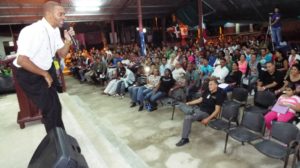
Pastor Alain Toledano Valiente
Toledano Valiente told CSW that he received the summons on the evening of August 7 and was told to present himself to the police at 10am on August 8. No reason was given for the summons. Upon arriving at La Motorizada Unit #3 Police Station, he was interrogated for almost three hours by the unit commander.
CSW said despite the threats against him, Toledano Valiente indicated that the church would go ahead with the ‘Deborah Conference’ which aims to empower women.
In July, Toledano Valiente was stopped by government agents and blocked from boarding a flight to the US to attend the Ministerial on International Religious Freedom. He is still officially banned from leaving Cuba and his right to move freely within the country is also restricted.
“It looks like the regime is planning to invent criminal charges to bring against me in order to imprison me, just as they have done in the past with other pastors,” Toledano Valiente told CSW.
“I have had to deal with the fury and the hatred of the communist regime in many different ways and I think now I have to deal with dirty tricks on their part. I continue to be prohibited from travelling and I don’t think they are interested in freeing me. This is the price I have to pay in this country.
“I have had to cancel many national and international events because of this restriction. They want to suffocate me, trying to pin me down into a tight space to eliminate both my voice and myself, a pressure that wants to destroy both the church and me.”
CSW Head of Advocacy Anna-Lee Stangl said: “Concerns that weakened protections for freedom of religion or belief in the new constitution indicated a harder line from the new government appear to be validated. There is no justification for stripping religious leaders, who have committed no crime, of their right to travel or to arbitrarily ban churches from holding special religious events.
“We call on the Cuban government to immediately cease its harassment Alain Toledano Valiente and other church leaders and to allow these peaceful religious events and initiatives to take place without interference from the state.”


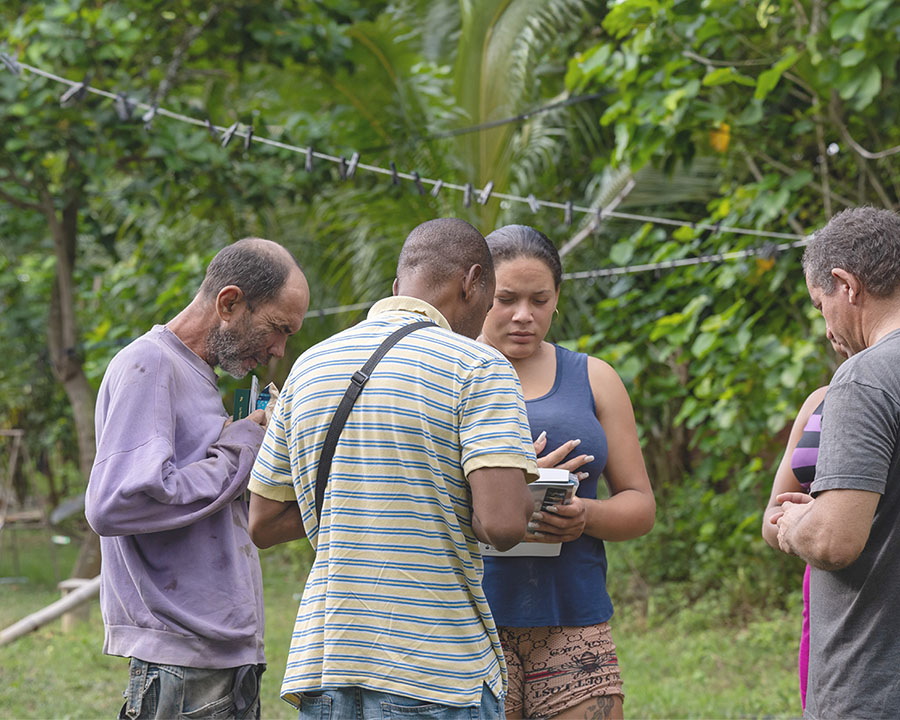
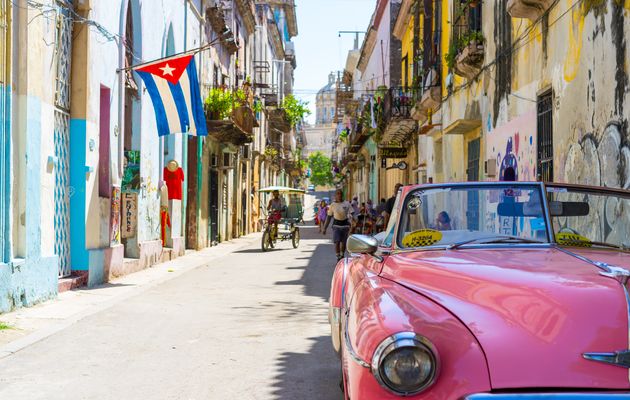
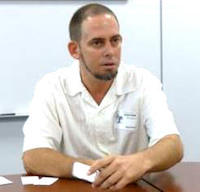




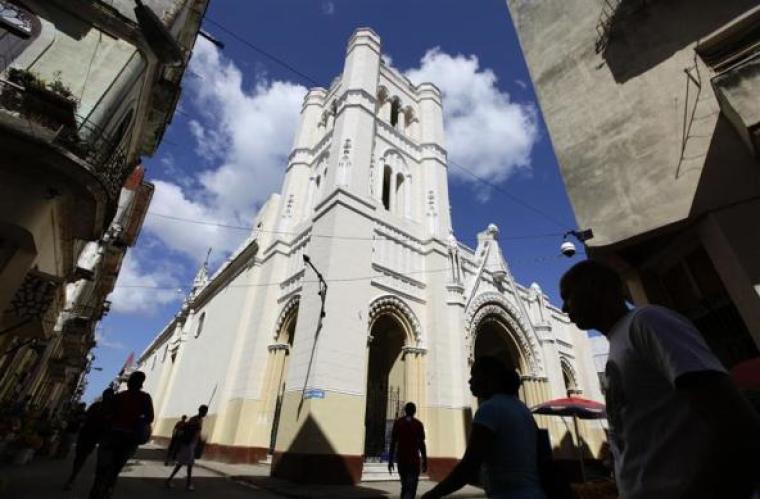
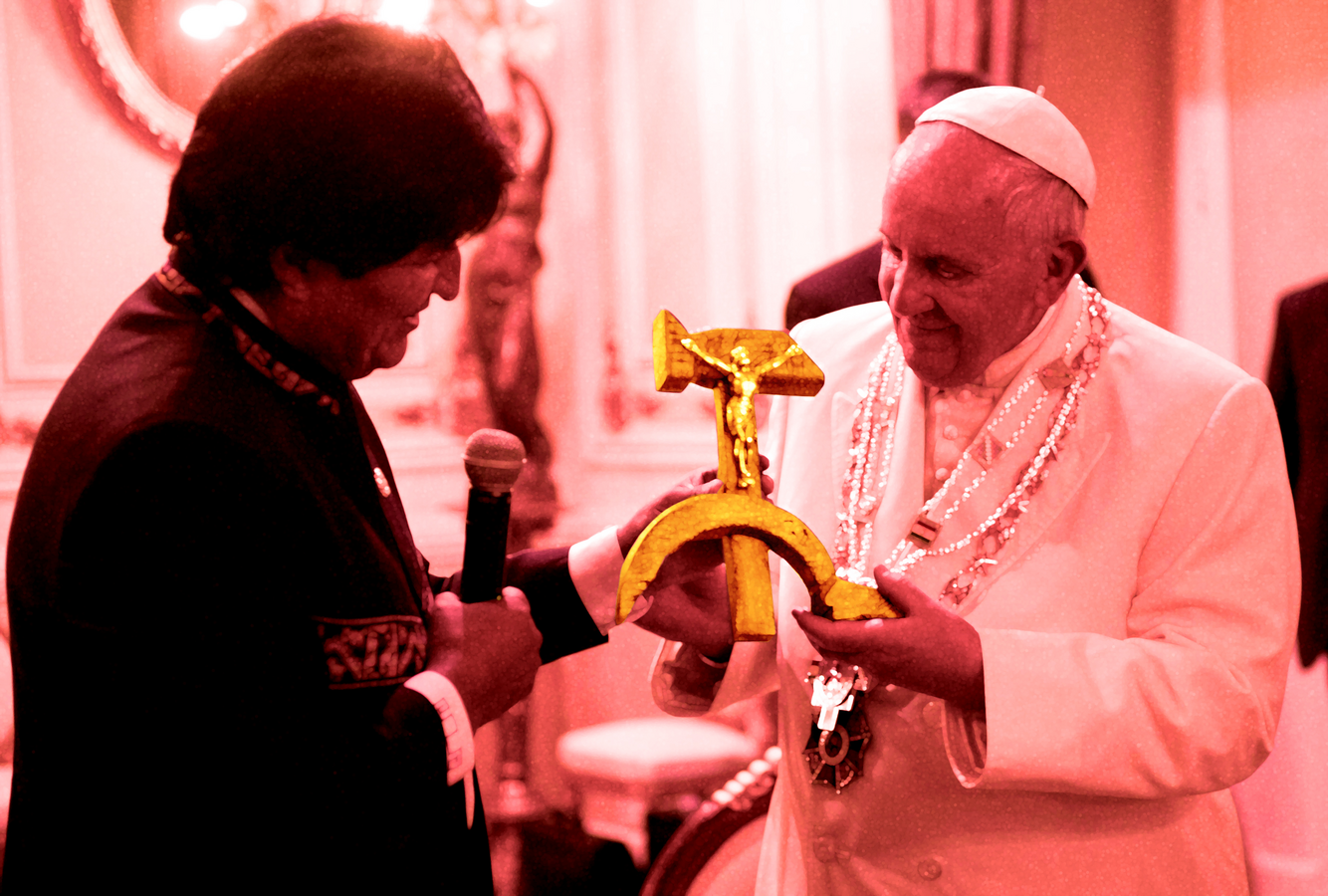



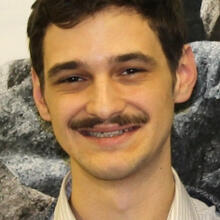
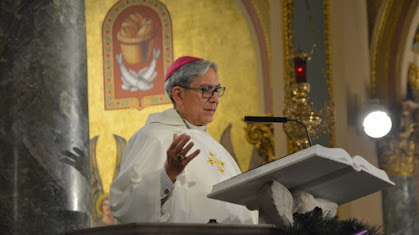










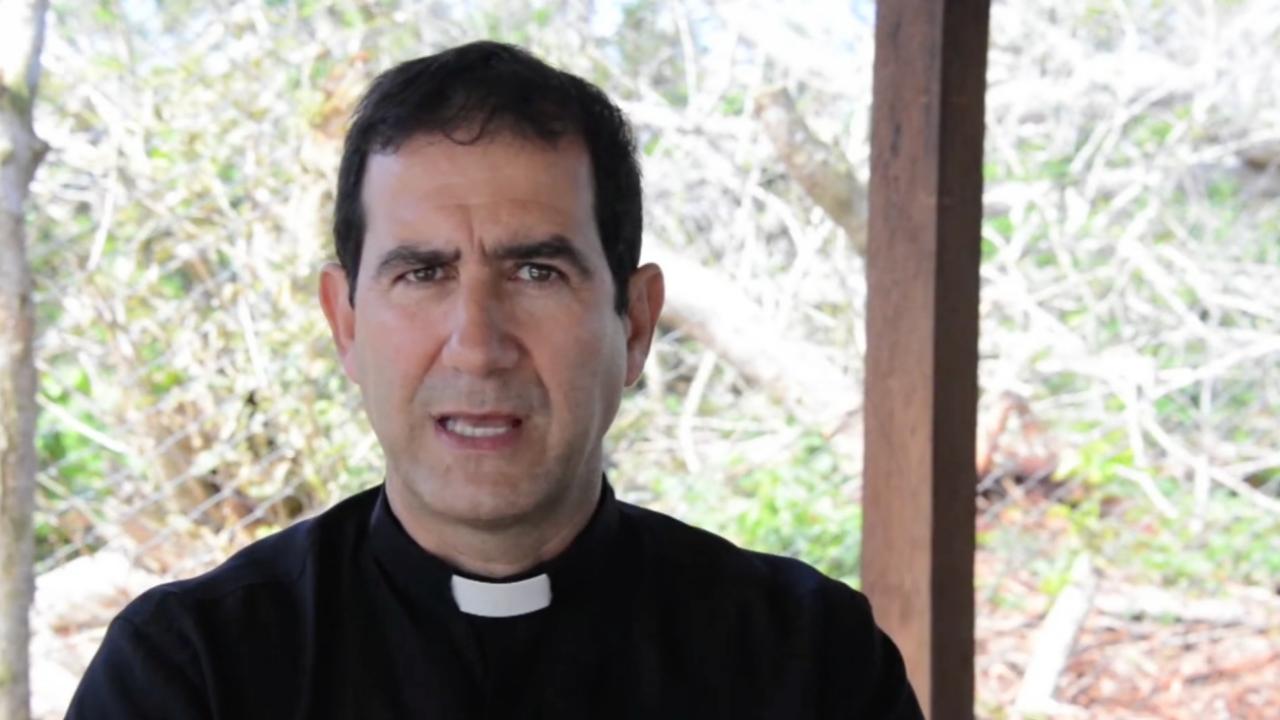

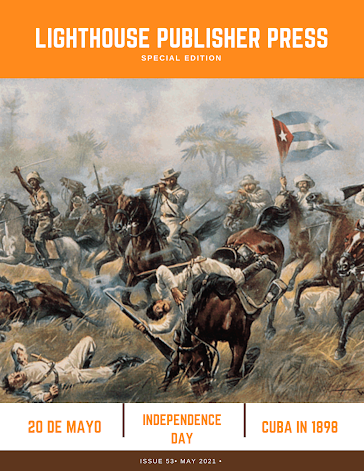

Comments
Post a Comment